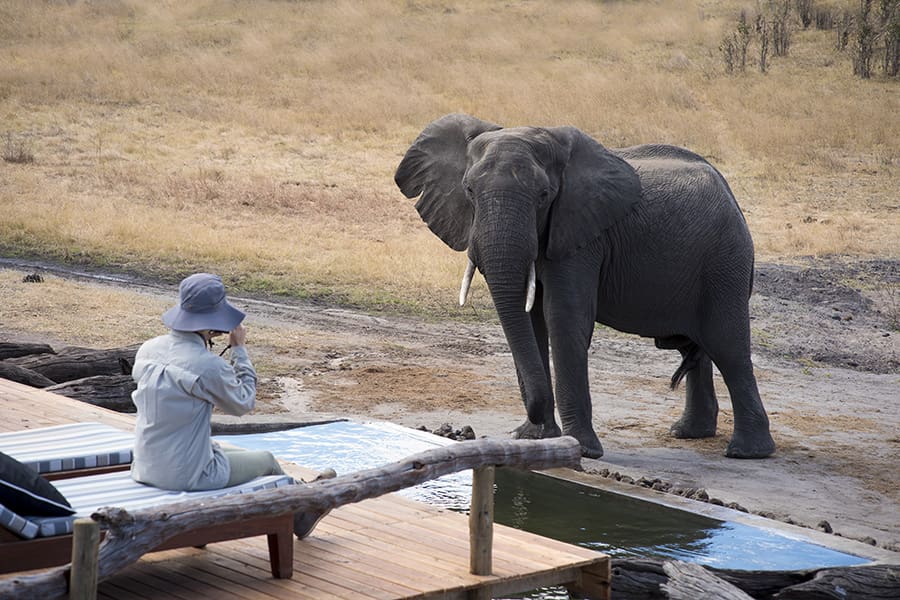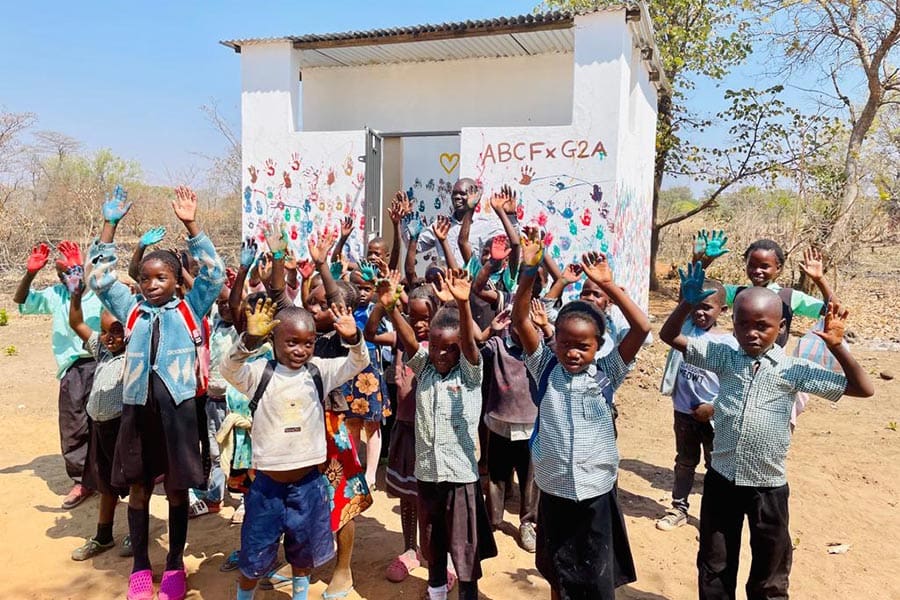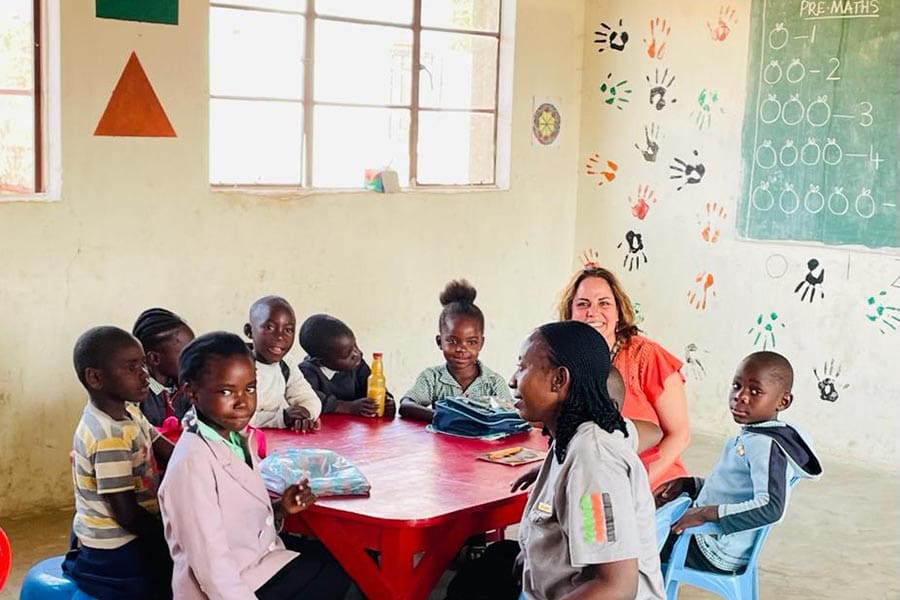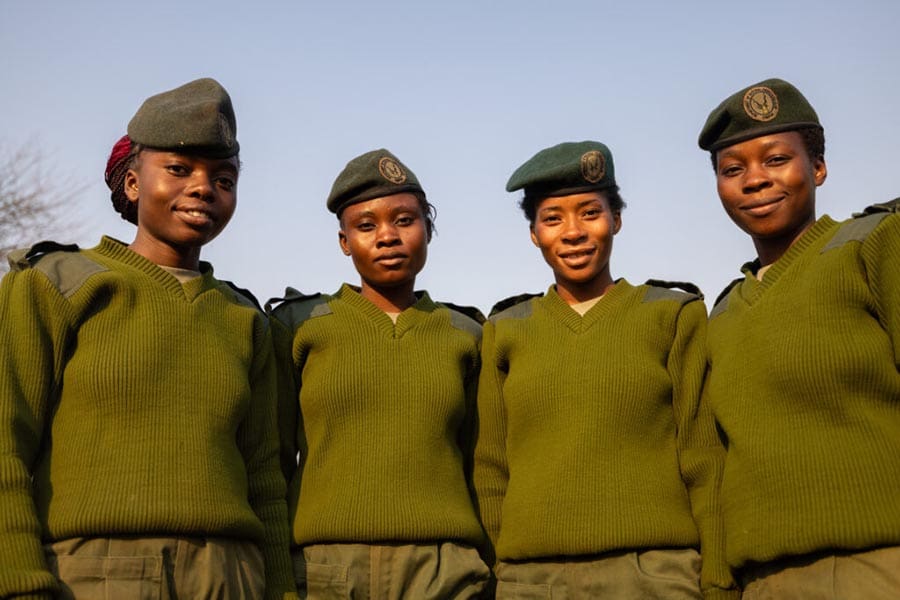Language
- English
- Español
Currency
- AUD Australian Dollar
- CAD Canadian Dollar
- EUR Euro
- GBP Pound Sterling
- USD US Dollar
- ZAR Rand

Go2Africa's commitment to Positive Impact aligns seamlessly with the vision of African Bush Camps (ABC). Founded with a philosophy rooted in balancing tourism and conservation, ABC supports sustainable travel initiatives that benefit communities and wildlife across Africa. This commitment shines through in ABC's extensive work with Maunga Village in Zambia, where, alongside the African Bush Camps Foundation (ABCF), they drive community upliftment, support environmental stewardship, and promote sustainable development.
In this exclusive interview, we delve into the philosophies, practices, and future goals of ABC's conservation efforts with insights from their Chief Conservation Officer, Francois Barnard, and Impact Officer, Nombuso Ngubane.

At African Bush Camps (ABC), our philosophy is grounded in balancing tourism with the protection of natural ecosystems. We believe that responsible tourism can serve as a tool for conservation, ensuring the longevity of Africa's wild spaces. By prioritizing sustainability, community, and the environment, we aim to protect wildlife and preserve ecosystems while delivering enriching guest experiences.
Our purpose of ‘Conserving and Sharing Africa, Together' captures the symbiotic relationships that exist between Conservation, Communities, and Sustainability. Our model of positive impact is based on these three intertwined and mutually supportive focus areas:
Conservation: We secure, protect, and restore large, connected landscapes and ecologically functioning ecosystems that enable wildlife to move and thrive.
Community: We support communities living close to our camps with better education, empower them with alternative livelihood opportunities, and celebrate their natural and cultural heritage.
Sustainability: We are committed to continually reducing our environmental footprint and to supporting local socioeconomic development across our camps and business.
Our camps adopt renewable energy solutions, primarily solar power, and water conservation methods. We have largely eliminated single-use plastics, focusing on refillable options and recycling. Additionally, waste is meticulously managed, including composting. We support local conservation organisations, conduct research to inform our conservation projects, and facilitate human-wildlife coexistence through better management of livestock. These practices, alongside educating interested guests on conservation, allow us to minimise our footprint while contributing to the restoration of natural environments.
These are some of our key sustainability initiatives:
Environmentally Friendly Cleaning Products: Across all our camps, we have switched to PROBAC Biologicals, eliminating harmful chemicals like chlorine and ammonia. These eco-certified products, endorsed by Green Seal, use microbial cleaning technology, providing superior cleaning while aligning with our commitment to sustainability.
Sustainably Sourced Wood: All firewood used in our camps is sourced sustainably. We collect deadwood from within the parks and concessions, ensuring no live trees are cut down. This practice supports forest health and biodiversity.
In-Camp Food Gardens: In Zambia, our Thorntree River Lodge boasts a food garden used by both staff and guests. The garden features a variety of plants, including coriander, fennel, Swiss chard, lettuce, and strawberries, promoting sustainable food practices.
Building Materials and Environmental Management Plans: Our construction practices prioritize sustainability. For example, in Botswana, we replaced every tree removed during the building of Lediba camp with three new seedlings. We primarily use wood and minimal concrete, adhering to Environmental Management Plans to ensure our operations do not harm the environment.
Zero Waste to Landfill (ZWTL) & Zero Plastic: We aim to eliminate all single-use plastics and work with waste management companies to reduce our waste footprint. This includes procuring more environmentally friendly products and using reusable metal water bottles and biodegradable packaging where possible.
Solar Power: All but one of our camps runs on solar power. Thorntree River Lodge uses the Zambian electricity grid, which is largely hydro-powered, making it more sustainable than carbon-intensive grids.
Water Recycling and the Bio Rock System: Our camps implement water recycling programs using the Bio Rock system, which purifies wastewater for irrigation and replenishing wildlife watering holes. Grey water from baths and sinks is treated to ensure it is safe for the environment and supports plant growth.

Thorntree River Lodge fosters a deep connection with local communities through initiatives that generate both economic and social benefits. We employ a substantial percentage of our staff from surrounding areas and engage in partnerships that allow local communities to participate in conservation activities.
To address the issue of illegal tree cutting for charcoal around Livingstone, we collaborate with local communities to provide sustainable alternative livelihood opportunities that reduce dependency on charcoal production. Additionally, the lodge supports local schools and clinics, offering education and healthcare, which further incentivizes conservation efforts. Initiatives like litter clean-up days foster environmental responsibility in the community.

Through our partnership with Maunga Village, we support both educational and environmental efforts, including solar integration, school projects, health centre support, and wildlife conservation. ABC also collaborates with Conservation Lower Zambezi to expand impact across Zambia. Initiatives include:
Female Guides Program: ABC's two-year program empowers Zambian women to become safari guides through skills training and mentorship.
Conservation Lower Zambezi (CLZ): As a Platinum Member, ABC supports wildlife protection, environmental education, and community projects in the Lower Zambezi.
Kufadza Female Scouts: ABC partnered with CLZ to train all-female scout teams (Kufadza Scouts) to protect wildlife in Lower Zambezi.
Community Washing Points: In collaboration with CLZ, ABC set up enclosed washing points along the Zambezi River to reduce wildlife-human conflicts.
Maunga Primary School and Health Centre: Located in Maunga Village, these facilities provide essential education and healthcare services, with solar panels and clean water sources.
In 2023, ABC formalized our impact assessment by launching baseline assessments for key sustainability indicators and developing Impact and Sustainability Frameworks. These frameworks embody the 4Cs—Conservation, Community, Culture, and Commerce—ensuring holistic alignment with global standards.
We track social metrics like employment, gender equality, and training, alongside environmental metrics such as energy use, water management, waste minimization, and reducing single-use plastics.
Our goals include transitioning all camps to renewable energy, implementing zero-carbon vehicles, expanding community conservation projects, and protecting wildlife corridors. Women's empowerment is also central to our objectives, with plans to expand programs like the Kufadza Female Scouts and Female Guides project, fostering lasting gender equity in conservation roles.

We're particularly excited about waste management projects, the expansion of women's empowerment initiatives, and our Women in Tourism program, which will further solidify our commitment to responsible tourism.
By booking your journey with Go2Africa, you actively contribute to initiatives like those at Maunga Village, helping drive Positive Impact projects across Africa. Together, we can support communities, protect wildlife, and promote a more sustainable way to experience Africa: